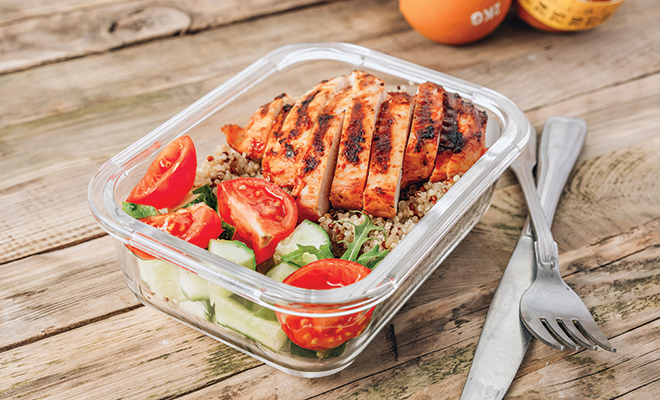
Nutrition for Cancer Patients
Cancer, one of the leading causes of death worldwide, is prevalent and petrifying. Most people recognize that simple lifestyle habits such as following a healthy diet could help prevent many cancers. Mounting evidence suggests that nearly 1 in 20 cancer cases could be avoided through consuming a more nutritious diet.
Prevention aside, what may be more significant is that nutrition is thought to play an important role in treating and coping with cancer. Eating nutritiously regularly is important, but when a patient is being treated for cancer, this can be difficult to do, especially since side effects play a role in how a cancer patient feels. The disease can also affect the way a body tolerates certain foods and uses nutrients.
But the American Cancer Society says to eat up. A healthy diet helps the body function at its best, especially if cancer is present. Eating well also builds strength and energy, allowing a patient to better cope with the side effects of treatments and protocols. In fact, research shows that some cancer treatments work better in people who are well-nourished.
Getting all the necessary nutrients and calories when a person is healthy is not usually an issue, but when someone has cancer, this can be tricky. Cancer can change what the body needs before, during and after treatment.
Before Treatment
Before treatment starts, it’s wise to focus on healthy foods as much as possible. The treatments may cause side effects that can leave a patient feeling weak or nauseated. Getting good nutrition beforehand can help make the body feel better and stronger.
There may also be days when someone doesn’t feel like eating at all, so planning ahead of time is important. Experts say to stock the fridge with healthy foods that take little time to prepare. Good choices may include nuts, applesauce, yogurt, pre-chopped veggies and microwaveable brown rice or other whole grains. Frozen entrees, either store bought or homemade, make good choices as well. This might be the time to ask for help from family or friends to bring meals for the first days or weeks of therapy.
During Treatment
During treatment, most nutrition guidelines suggest eating lots of protein and healthy calories to keep the body resilient and help repair damage from any treatments. Besides protein, other healthy choices include vegetables, fruits and whole grains. Experts also recommend limiting red meat while reducing fat intake, sugar, salt and alcohol. But, with the likelihood of side effects or feeling sick in general, cancer and the treatments that come with it can change the way the body tolerates certain foods and uses nutrients.
Building strength during treatments becomes very important, since a better diet may help a patient tolerate effects of the cancer as well as the protocols. This may mean eating things that aren’t normally recommended when you are in good health. For instance, a cancer patient might need high-protein, high-calorie foods to keep up their weight, while someone else may need thick, cool foods such as ice cream or milk shakes to help ease the pain of sores in the mouth. The type of cancer present and the various treatments, as well as any side effects experienced by the patient, should be contemplated when trying to figure out the best ways to get the nutrition the body needs.
Cancer or cancer treatments can affect a patient’s sense of taste. Food may seem to lack flavor or seem too sweet, salty or metallic. Generally, these changes are short-term and will improve over time. Doctors and nutritionists suggest patients who were following a particular diet before their diagnosis, such as low sodium, low fat or a diet for diabetes, may find it beneficial to relax those dietary restrictions for a while.
After Treatment
After treatment, a patient’s diet is just as important or more important moving forward. Eating well will help a patient regain strength and energy, rebuild tissue and feel better overall. Talking with a doctor or care team before making major changes in diet is very important. Working with a registered dietician who specializes in cancer can be beneficial as well.
There’s no diet that can cure cancer and research does not show that any particular way of eating can lower the chance of recurrence. But for most people, sticking to healthy, nutritious foods and limiting sugar, caffeine, processed foods and alcohol will be the best bet moving forward.
Patients and their families can find many helpful resources on their own when it comes to eating to fight cancer. The American Cancer Society recommends the book What to Eat During Cancer Treatment by Jeanne Besser and Barbara Grant, which contains more than 130 recipes, practical tips and suggestions to help patients and their caregivers anticipate and overcome the major challenges of eating well with cancer.
Sources: cancer.org, mayoclinic.org and webmd.com.







